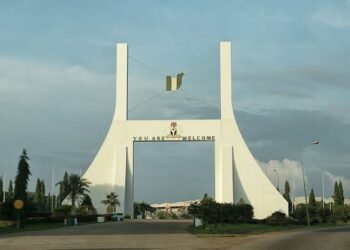Officials of the Human and Environmental Development Agenda (HEDA Resource Centre), have urged residents of some climate frontline communities in Nigeria’s capital city, Abuja, to adopt sustainable environmental practices to mitigate climate change effects.
The officials spoke during the visitation to two communities; Piwoyi and Ushafa located at the Abuja Municipal (AMAC) and Bwari Area councils respectively.
The sensitization campaign is part of activities mapped out under the organisation’s “African Activists for Climate Justice” project.
The awareness campaign movement was organised by HEDA Resources Centre in partnership with Oxfam, with the aim of amplifying the voices of climate vulnerable communities in the country.
In his remark, the executive Secretary of HEDA Resource Centre, Sulaimon Arigbabu, hinted that they were committed to amplifying the voices of climate frontline communities across Nigeria.
“Today, we visited Piwoyi Community under AMAC LG, Abuja, an agrarian community along the river Upah. It is worrisome that despite the closeness of this community to the FTC and the massive population it has inhabited, there is no government presence,” he said.
He lamented that the community is challenged mostly by massive flooding and erosion occasioned by intense rainfall, which causes the river (River Upah) to overflow its banks, thereby washing away farms and infrastructure.
“A bridge constructed for the community by a private company located within has been washed away and rendered useless, making it impossible for some of the community people to either get to their farm lands, or ferry their farm produce back home or to the markets,” Mr Arigbabu noted.
During their interaction with residents Piwoyi community, he said the community members bemoaned the lack of government presence and that no government official has ever visited or promised to provide immediate relief after witnessing flood disasters last year and this year.
“No infrastructure support to ameliorate sufferings,” he added.
A farmer residing at Piwoyi community, Jenima Ezekiel, lamented that she does not have any other occupation aside from farming but that whenever she farm, the flood destroys their crop field.
“This year, I planted maize and beans but the overflowing water washed off the crops, we could only harvest a few,” she said.
Another farmer, Elizabeth David, who farms across the river Upah, said farming has been difficult due to the overflowing River and that they don’t have a canoe to cross the river.
“The overflowing water destroyed the bridge we often use to cross to the other side of our farms. We are begging the government to come to our aid,” she said.
However, during their visit to the Ushafa community in Bwari area council, he said they observed that the community is not prone to flooding from overflowing rivers but to flash floods whenever there is intense rainfall due to “poor physical planning”.
“This community is sitting on high grounds on top of rocky terrain and is thus not impacted by rising waters and the type of flooding that others experience,” he said.
Arigbabu explained that the more worrisome issue in the Ushafa community is the fact that despite hosting the Asuma Dam (a major source of water in Abuja) the community has no reliable water supply.
As a result of this, he said households who are unable to sink and maintain a borehole, the women and children have to walk long distances to fetch water from water bodies within the mountains.
While appreciating the HEDA Resource officials for bringing climate awareness to their community, the Ushafa village head, Muhammadu Baba-Kwanga, and his council asked the organisation to assist them to call on the government to address their plight of inadequate water supply in the community.
“We are also calling on HEDA Resource Centre, other NGOs and the governments to come to our aid with a robust tree planting program,” Mr Baba-Kwanga said.
He said they are convinced that planting and nurturing more trees in their community is the only way they could be part of the climate change solution.



